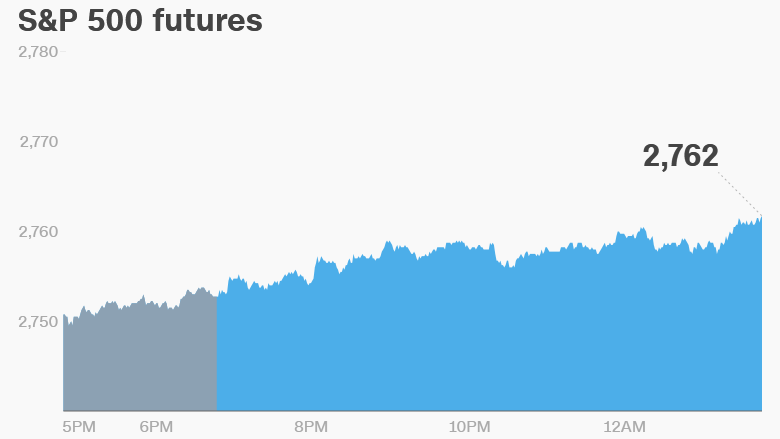1. OPEC meets: OPEC members are meeting Friday in Vienna to consider a potential production increase.
Saudi Arabia has signaled that it wants the cartel to increase supply in the face of rising prices, but other OPEC members including Iran have resisted major changes.
Oil prices have spiked by as much as 20% this year, in part because OPEC has produced even less than was foreseen under a 2016 agreement that was supposed to reduce supply by 1.8 million barrels per day.
Saudi Energy Minister Khalid Al-Falih said on the eve of the summit that increasing output by 1 million barrels per day would help prevent a potential shortage.
"I am sure we will come to consensus, and we will look back at this meeting as being equally important to the one we had in late 2016," he said.
US crude futures rose 1.3% to around $66.30 per barrel on Friday.
2. Brexit siren: Airbus has issued a stark warning to the the United Kingdom over Brexit.
If Britain crashes out of the European Union next year without a deal on trading arrangements, Airbus (EADSF) says the outcome would be "catastrophic," throwing its production into chaos and threatening its future in the country.
"This scenario would force Airbus to reconsider its investments in the UK, and its long-term footprint in the country, severely undermining UK efforts to keep a competitive and innovative aerospace industry," the European planemaker said in a statement.
British and EU negotiators conditionally agreed in March to a transition period lasting until the end of 2020, but it's contingent on other issues that still need to be resolved.
3. Greek relief: The end of the Greek debt crisis is around the corner.
Eurozone finance ministers have agreed to extend the maturities and defer interest on some loans provided to Greece, paving the way for the country to exit its third bailout program in August.
"After eight long years, Greece will finally be graduating from its financial assistance," said Mario Centeno, who chaired the meeting of eurozone finance officials.
4. Stress test results: Wall Street banks are strong enough to withstand the next severe economic downturn.
The US Federal Reserve said Thursday that 35 major financial institutions, including Bank of America (BAC), JPMorgan Chase (JPM) and Citigroup (C), would be able to lend under even the grimmest of economic conditions.
The banks were tested against an economy with 10% unemployment, a plummet in housing prices and a severe recession in Europe and elsewhere.
Even under that dire scenario, the banks would have more capital than they had in the years leading up to the Great Recession.
5. Global market overview: US stock futures were higher.
European markets were lower in early trade. Asian markets posted gains.
The Dow dropped 0.8% on Thursday. The S&P 500 declined 0.6% and the Nasdaq shed nearly 1%.
Before the Bell newsletter: Key market news. In your inbox. Subscribe now!
6. Earnings and economics: BlackBerry (BB) and CarMax (KMX) will release earnings before the US open.
EU tariffs on products from the United States take effect on Friday.
The tariffs will hit American products including motorcycles, orange juice and bourbon. The EU is retaliating for the Trump administration's tariffs on steel and aluminum exports from Europe.
Markets Now newsletter: Get a global markets snapshot in your inbox every afternoon. Sign up now!
7. Coming this week:
Friday — OPEC meeting



